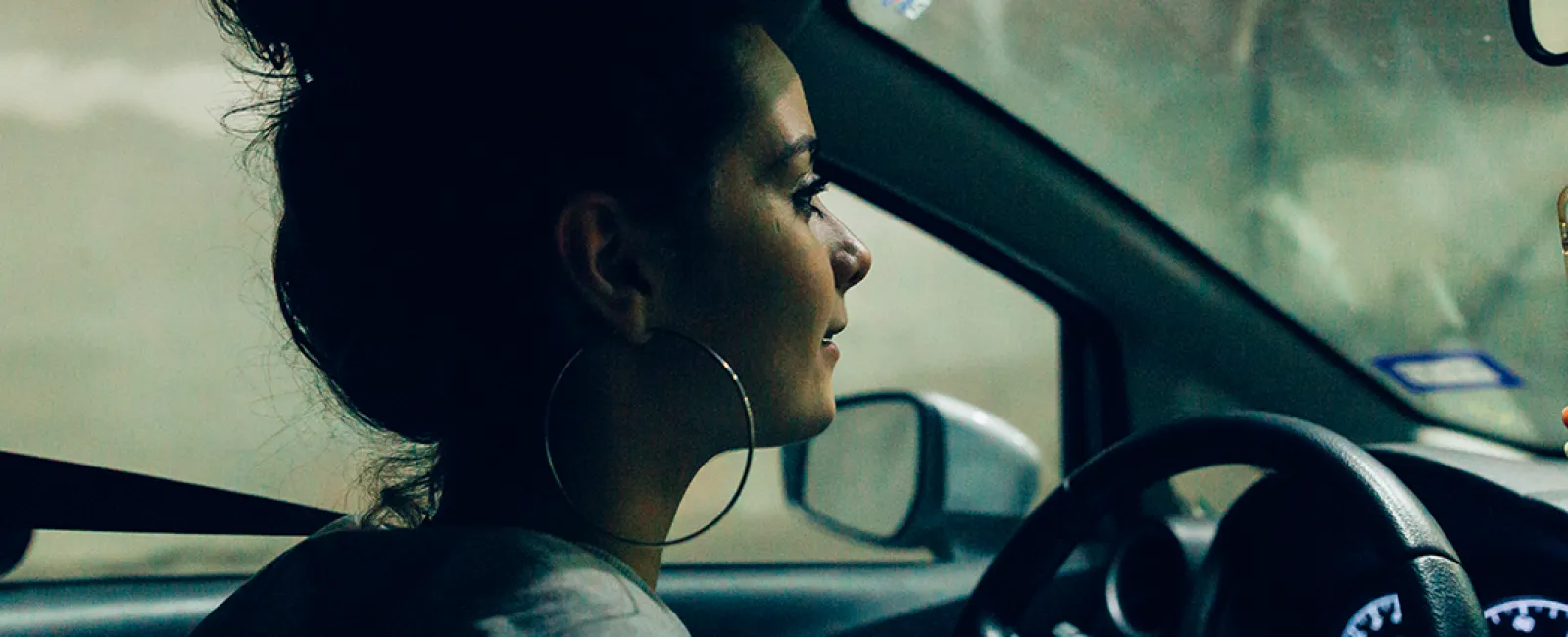Are you ready for this?!
She is euphoric, you are terrified. It's the day you knew would come, and now you're preparing for the white knuckle ride, literally and figuratively, of keeping your teen driver safe.
Obviously, driving safety starts with driving safely, and all parents hope and pray that their teen driver will take this responsibility seriously, and will obey laws and make good choices. This article focuses on some of the additional risks to personal safety that should be discussed with your teens before they hit the road alone or with friends.
Keeping Your Teen Driver Safe 101
First and foremost, parents should set up a system of consequences and expectations for breaking any family driving rules. These should be spelled out clearly, in writing, and all parties should sign the document. Consequences and expectations are unique to all families, but the CDC provides a good framework for this discussion; it's called the Parent-Teen Driving Agreement. This agreement covers all the basics of safety for your teen driver, and is a great conversation starter about the bigger implications of bad behavior behind the wheel. Teen drivers should also agree to GPS tracking whenever they are out as a driver or passenger with other teens. Good apps for this are "Find My iPhone" for IOS and "Life 360" for Android or IOS. These apps allow you to track your child with pinpoint accuracy in most cases, and this is a great safety mechanism for parents.
Let's discuss bad behavior. There is a very real possibility that teens may do something that causes them to get pulled over by police. Safety for the teen and the officer is the priority in this situation. Here are a few suggestions to keep the interaction safe for all parties:
- If a police officer is making a traffic stop, it is reasonable for the driver being pulled over to stop in a place that feels safe; this means that your teen can activate the vehicle's hazard lights (practice this with your teen) and continue to drive to a place that's well-lit and populated to interact with the officer. All police agencies allow and encourage this practice; if for some reason your teen is feeling threatened into pulling over in a place that doesn't feel safe, a quick call to 9-1-1 before interacting with the officer can verify that the traffic stop is legitimate. Periodically, there are stories of criminals who instigate fake traffic stops to commit crimes; a call to 9-1-1- can confirm any suspicions.
- During a legitimate traffic stop, instruct your teen to open the driver window, remain seated in the vehicle, and place hands at 10 and 2 on the steering wheel. The officer wants to see your child's hands from the moment he approaches the car.
- Your teen should follow the officer's instructions, remain calm and speak in a polite and respectful manner. Teens who are respectful and follow instructions are much less likely to have a bad outcome. Teens who are belligerent, treat the officer poorly, or yell at the officer may find themselves being arrested.
- Make sure that your teen driver understands the law, and understands what an officer can and cannot do in a traffic stop situation. Here is an article from Georgia Legal Aid about rights during police searches.
- Talk with your teen about the importance of sober driving and instill a sense of ownership about this issue; the consequences of compromised driving are enormous and long lasting for teens, it's simply not worth the risk. Your teen should also understand that the law permits any driver to refuse a field sobriety test of any kind. If refusing the test, your child should do it politely and respectfully, "officer I do not wish to be tested at this time." If the officer believes your teen is compromised by alcohol or drugs, the child may be arrested even if the test is refused.
- If your child is uneasy about an interaction with police, cell phone video is always helpful. The police vehicle will likely have video of their own, but video from the driver or passengers is also a good idea if the incident escalates to the court system at a future point in time.
In addition to stops by police, or people posing as police, there are criminals who commit "bump and rob" attacks on drivers. This is a situation where the criminal will deliberately hit your vehicle, and when you pull over to exchange information you will find yourself being robbed, or worse. Talk with your teen driver about this and prepare a response. The bump and rob situation will be one that doesn't cause a lot of damage to the vehicles, typically it will be a bumper to bumper tap from behind, or a slight side swipe. The criminals would not do damage to their vehicle that could prevent them from escaping the scene, so it will be a minor accident. In any accident, your teen will likely be shaken up and not thinking clearly, which is why it's very important to talk about a response in advance. The safest thing to do whenever you are in an accident of any kind is to immediately snap a photo of the other driver and the vehicle, and secure your valuables on your person or lock them in your vehicle if you get out. If you are hit, look carefully at the driver behind you as you are pulling over to assess the damage. If the driver or passengers seem at all suspicious, keep your doors locked and your windows up as they approach you, keep your foot on the brake and your car in gear and be prepared to pull away if you feel threatened. Better to get a ticket for leaving an accident scene that to become a victim of a crime.
Another possible scenario for consideration is a single vehicle accident that takes your teen driver off the road and out of sight. Unfortunately, this happens often, and many times the outcome is tragic. When considering emergency preparedness in a vehicle, a small air horn can be a good safety tool. If the vehicle has left the road, there is a possibility that the horn may not work, or it will only work for a short period until the battery dies; an air horn is a good tool for drawing attention from passersby. It can also be used to deter a threat if necessary; blowing an air horn can create distraction and provide time for escape from a threatening situation.
Our thanks to Alpharetta attorney Scott N.G. Childress for his contributions to the traffic stop safety portion of this article. To learn more about your rights, visit Scott's website.
Revved Up Kids has trained tens of thousands of children to recognize dangerous people, avoid unsafe situations, and escape attackers. Our training programs are available for boys and girls in K-12th grade, for parents, and for youth serving organizations. Contact us to discuss protecting the children you love from predators and violence, 678.526.3335.

